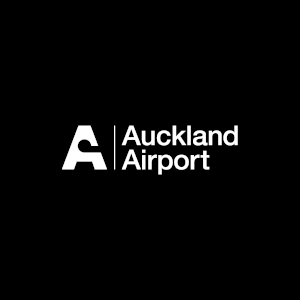(IN SHORT) Auckland Airport has been granted Level 4 Airport Carbon Accreditation by the Airports Council International (ACI), placing it among the leading airports globally in sustainability efforts. Acknowledging the significance of this achievement, Mary-Liz Tuck, Auckland Airport’s Chief Sustainability and Master Planning Officer, emphasizes the airport’s commitment to reducing its carbon footprint and aiding other airport organizations in emissions reduction. The accreditation reflects Auckland Airport’s dedication to environmental stewardship amid its largest development program since its establishment, focusing on infrastructure upgrades designed with carbon emissions reduction in mind. Through initiatives like phasing out gas-powered boilers and implementing rooftop solar generation, Auckland Airport aims to achieve net-zero emissions for its own operations by 2030, showcasing its proactive approach towards sustainability in the aviation industry.
(PRESS RELEASE) Auckland, New Zealand, 2024-Feb-21 — /Travel PR News/ — Auckland Airport’s work to cut carbon emissions has been recognised with a Level 4 Airport Carbon Accreditation from Airports Council International (ACI), putting it among the world’s leading airports in terms of sustainability.
Of the 555 airports globally holding an Airport Carbon Accreditation, the 15% ranked at Level 4 or above represent the leaders in emissions reduction, a group Auckland Airport is proud to be included in, said Mary-Liz Tuck, Auckland Airport’s Chief Sustainability and Master Planning Officer.
“Auckland Airport has been working hard to not only cut its own carbon footprint on the path to net zero, but also help other airport organisations shrink their emissions. While we’ve still got a way to go on this journey, the benchmarking done by the Airports Council International (ACI) through its Airport Carbon Accreditation programme is important validation for our sustainability work.”
Mr. Stefano Baronci, Director General of ACI Asia-Pacific & Middle East, said, “We are proud of Auckland Airport’s efforts in reducing carbon emissions and setting an example for airports in the region. Auckland Airport’s efficient carbon management demonstrates its firm commitment to invest in a more sustainable future. It’s encouraging to see airports making tremendous efforts to mitigate the impacts of climate change and enhance climate-resilience in an era of unprecedented challenges for the industry.”
Ms Tuck said the Auckland Airport is underway with what will be its biggest airport development programme since the Auckland Airport was built in the 1960s, one which extends from its roading network, across the terminals and out on to the airfield.
“As we upgrade our infrastructure, it is providing opportunities to tackle carbon emissions at the same time, whether that’s saving truck journeys by reusing concrete from runway repairs as the base material for our airfield expansion or targeting low-carbon and sustainable building practices for our terminal development.
“Decarbonising aviation is challenging, particularly for a country like New Zealand where airlinks provide vital connectivity to the regions and its nearest international neighbour is more than 2000km away, but we recognise it is going to take a team effort.
“No organisation can do it alone and we are ready to play our part to address Scope 3 emissions. Whether it’s having our airfield fuel network ready for SAF, providing electric ground power units for aircraft to run off when at the gate, EV charging for airside vehicles, or contemplating future low-emission fuel technology in our infrastructure planning, we are constantly considering how we can support the low-carbon ambitions of the wider aviation system.
“Auckland Airport has targeted getting to net zero for our own operations by 2030, which will see Auckland Airport reduce direct emissions by 90%. After four years we have already made some significant cuts to our carbon emissions with a 27% reduction in comparison to our 2019 baseline. The next six years will see us undertaking substantial projects to achieve net zero.”
Key initiatives include the phasing out of gas-powered boilers in favour of energy efficient heat pumps within the terminal –– and the addition of rooftop solar generation to power two new airport developments, the Transport Hub and the Mānawa Bay outlet shopping centre.
“This is a journey we’ve been on since 2008 when we introduced our first sustainability policy. In the 15 years since we’ve been making significant progress not just across our own operations, but also recognising the role we must play in supporting airlines and other airport partners to reduce their carbon footprint.”
About Airport Carbon Accreditation
The ACI Airport Carbon Accreditation is the only institutionally endorsed, global carbon management certification programme for airports. It independently assesses and recognises the efforts of airports to manage and reduce their carbon emissions through 7 levels of certification: ‘Mapping’, ‘Reduction’, ‘Optimisation’, ‘Neutrality’, ‘Transformation’, ‘Transition’ and ‘Level 5’.
At Level 4 ‘Transformation’ of Airport Carbon Accreditation, airports are required to align their carbon management ambition with the global climate goals and transform their operations with absolute emissions reductions in mind, while also strengthening their stakeholder engagement.
To achieve Level 4, an airport is required to set an absolute emissions reduction target that includes all Scope 1 and Scope 2 emissions as a minimum (i.e., an airport operator target scope).
Media Contact:
Helen Twose
Communications Manager
+64272540790
Helen.Twose@aucklandairport.co.nz
Source: Auckland Airport
###

